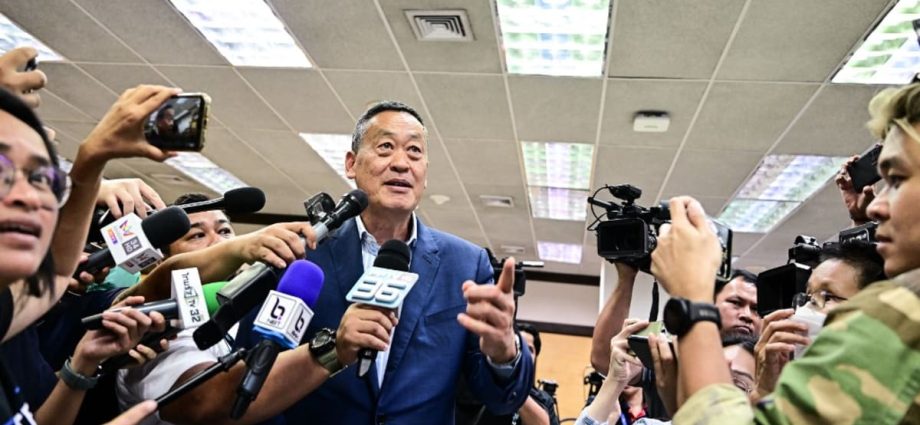
BANGKOK: Real estate mogul Srettha Thavisin won the backing of Thailand’s parliament on Tuesday (Aug 22) to become prime minister, paving the way to a new coalition government and an end to weeks of uncertainty and political stalemate.
Srettha, who was thrust into the spotlight just a few months ago by the populist Pheu Thai Party, secured the support of more than half of the legislature, on a day when the party’s billionaire figurehead Thaksin Shinawatra made a historic homecoming after years of as a fugitive in self-imposed exile.
Political neophyte Srettha, a former president of property developer Sansiri, will be tasked with forming and holding together a potentially fragile coalition that will include parties backed by the royalist military, which overthrew Pheu Thai governments in 2006 and 2014 coups.
Among those ousted was former telecoms tycoon and Premier League football club owner Thaksin, who fled into exile and was jailed in absentia in 2008 for abuse of power and conflicts of interest. A government led by his sister, Yingluck Shinawatra, was ousted in a coup in 2014.
Thaksin, 74, received a rapturous reception upon his return from supporters at a Bangkok airport, before being escorted by police to the Supreme Court then to a jail to serve a sentence of eight years.
The return of Thailand’s most famous politician and Srettha’s smooth ascent to the top job will add to speculation that Thaksin may have done a deal with his enemies in the military and establishment to allow his safe return, and possibly an early release from jail.
Thaksin and Pheu Thai have denied that.
Tuesday’s events were the latest twist in a nearly two-decade power struggle between Pheu Thai, which has won five elections, and a nexus of conservatives, generals and old money families that have long wielded influence on politics and the economy.
Srettha was declared by Pheu Thai as a prime ministerial candidate, alongside Paetongtarn Shinawatra, Thaksin’s youngest daughter, in the run-up to a May 14 election in which the party finished second.
An attempt to form a coalition with the election winner, the progressive Move Forward, collapsed after it met fierce resistance from conservative members of the lower house and senators under the influence of the military.

